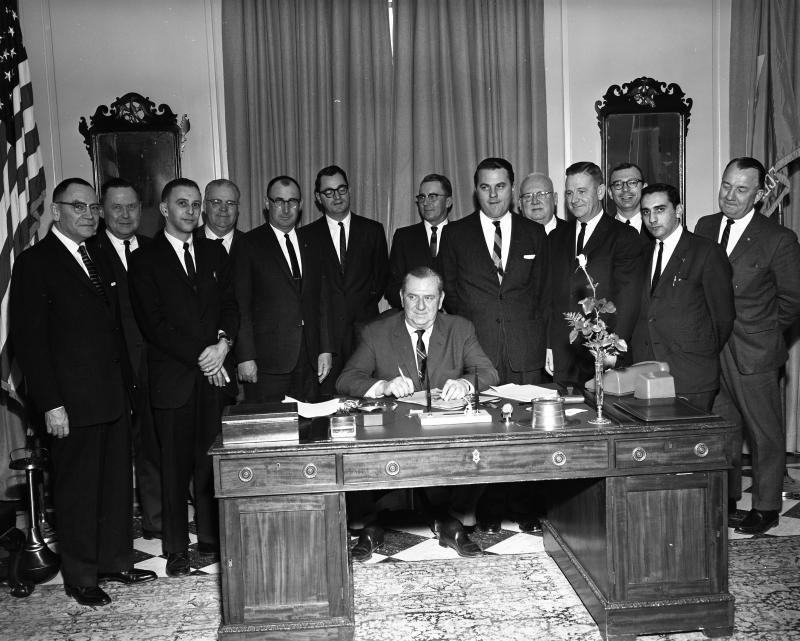Delaware court officials will gather at Delaware Public Archives Wednesday, May 11 to commemorate the 50th anniversary of the Justice of the Peace Court formally joining the Delaware State Courts system. Delaware Supreme Court Chief Justice Leo E. Strine Jr., Delaware Chief Magistrate Alan Davis, and Gov. Jack A. Markell and leaders from the Delaware General Assembly will all be were present.
In honor of the 50th anniversary, the Delaware Public Archives is unveiling an exhibit on the history of the Justice of the Peace Court that features photographs and rare documents related to the history of the court, including an arrest warrant signed by Caesar Rodney in 1767. The Justice of the Peace is one of the oldest offices in Delaware, tracing its roots back through English and Dutch colonization to the 1600s.
The role of the justice of the peace has evolved significantly over the years but has maintained its general purpose as a middle term between citizens and the courts. Just as at their founding, justices of the peace are not required to be attorneys (except for the chief magistrate) but are to be well-informed citizens with good sense and integrity. Until the Justice of the Peace Court began its operations in 1966, justices of the peace were paid based on fees imposed. This and other standard practices that had existed for hundreds of years had long been rightfully critiqued.
At the request of the Delaware Bar Association and others - and with the strong support of Gov. Charles L. Terry Jr. - legislation was enacted in 1965 and implemented in 1966 to reform the Justice of the Peace Court and bring it formally into the Delaware State Judiciary. As a result, justices of the peace, also often known as magistrates, became salaried employees.
While a law degree is still not required, as a result of joining the Delaware judiciary, justices of the peace began to receive training to provide for a more professional court that emphasizes procedural fairness and consistency in its rulings. Justices of the peace are currently trained in criminal and civil law, as well as judicial ethics and other critical topics.
“We are not only celebrating 50 years of the statewide Justice of the Peace Court, but also centuries of judicial history and a spirit of reform in the name of justice for all that has not ceased since 1966,” said Chief Magistrate Alan Davis.
In Fiscal Year 2015, the 60 justices of the peace across the state handled a total of 250,622 criminal cases and 32,381 civil cases. They also review approximately 99 percent of all search and arrest warrants authored in the State of Delaware and act as committing magistrates on all crimes up to and including murder in the first degree.


















































